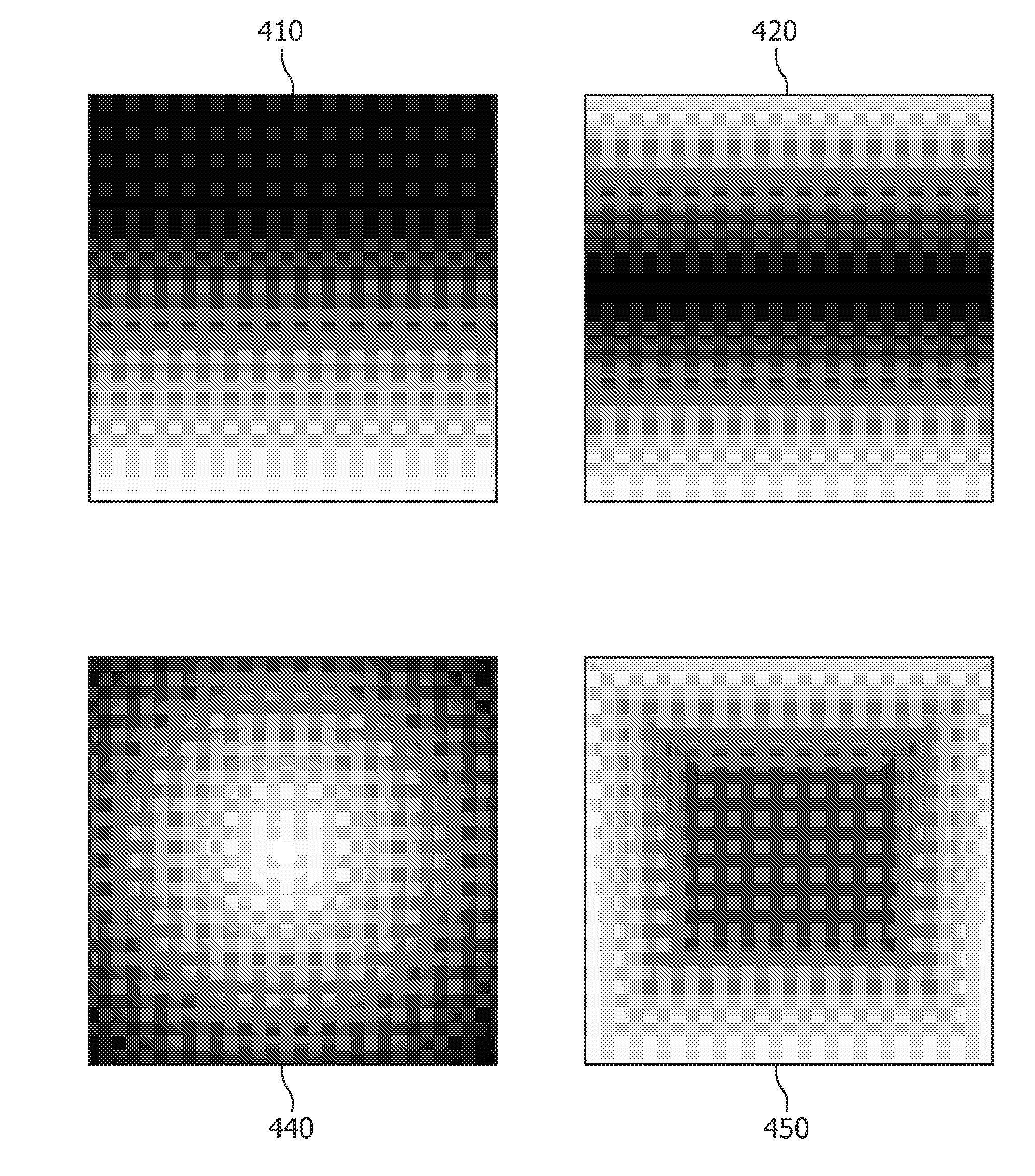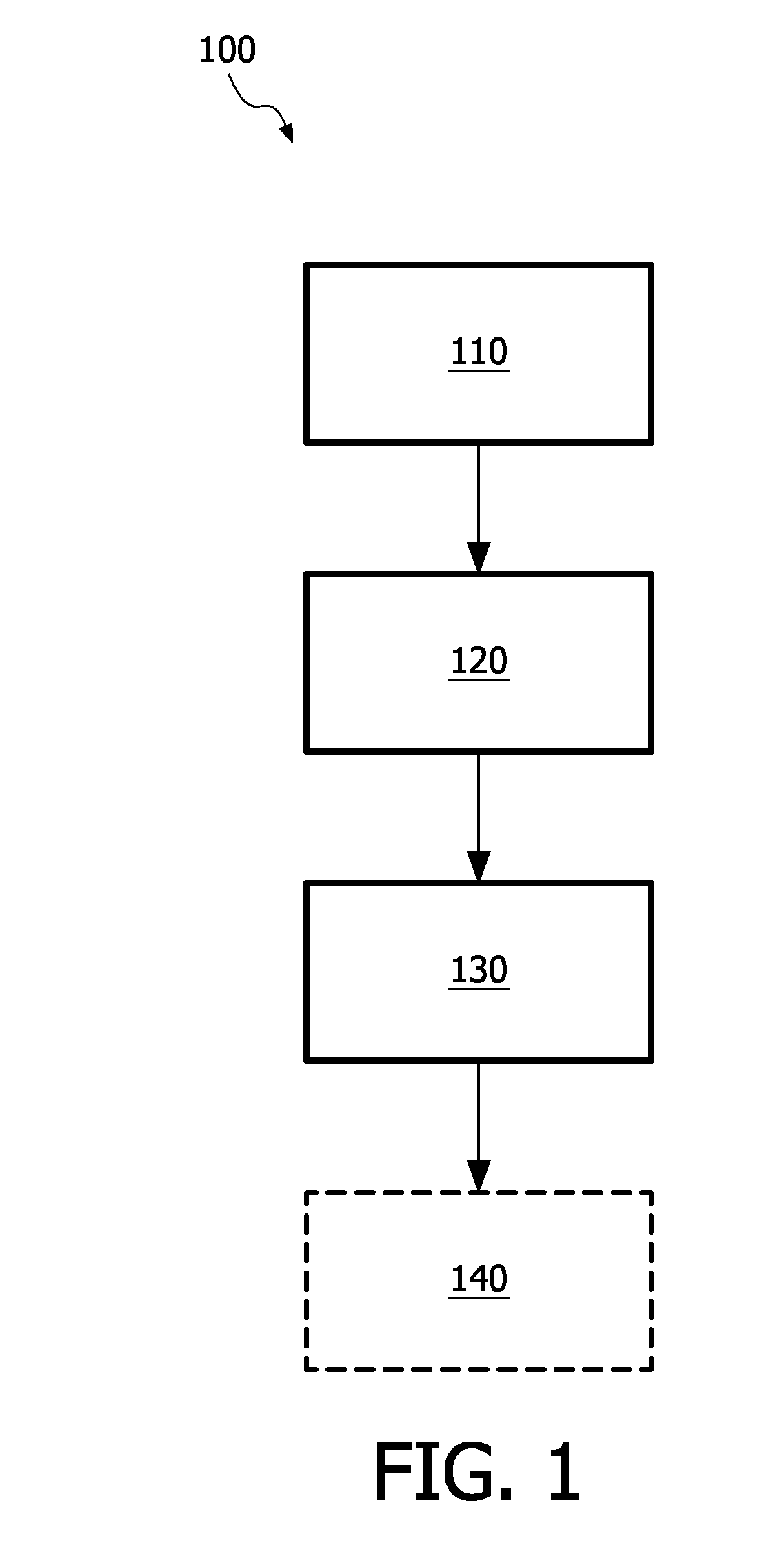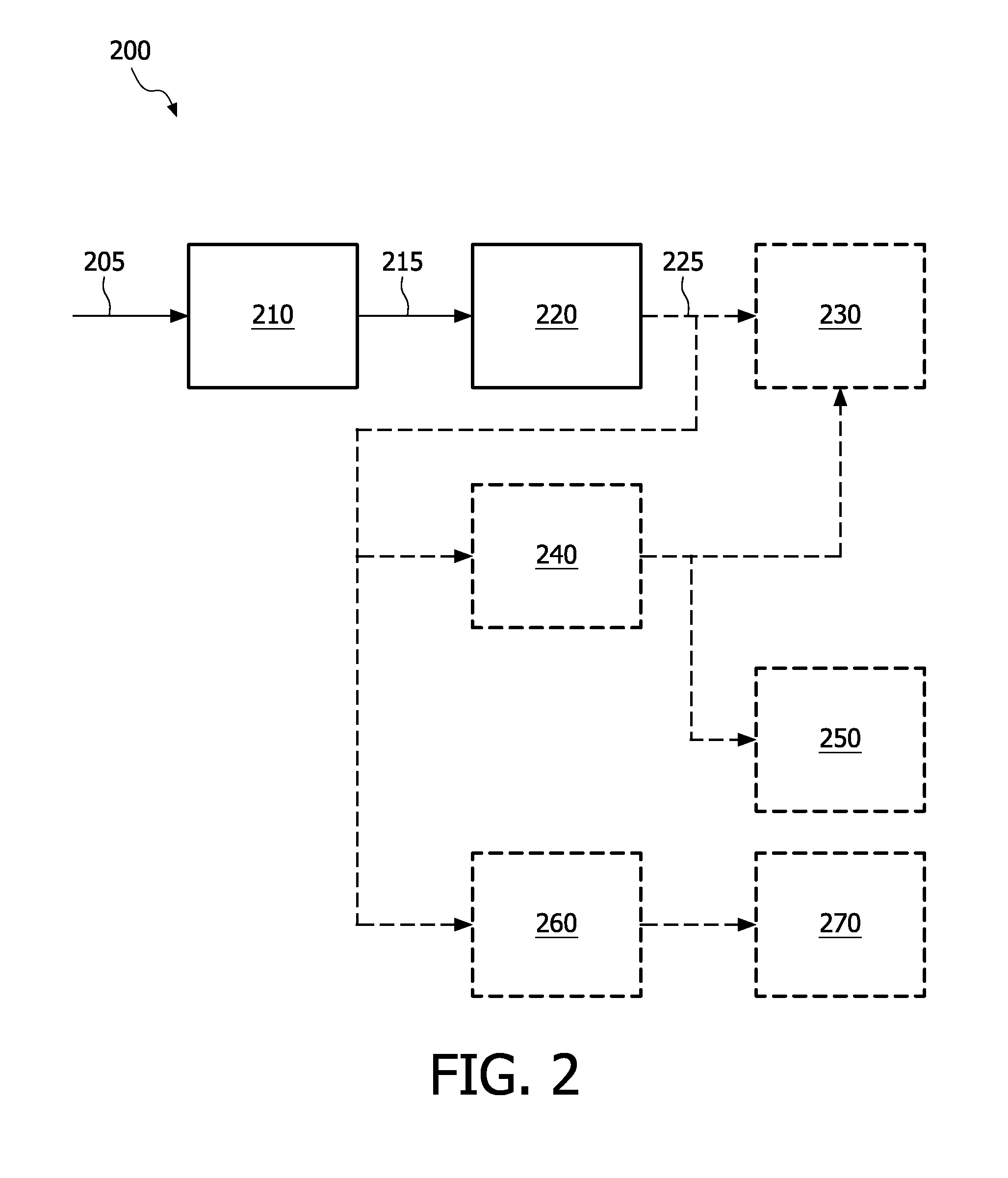Method and device for generating a depth map
- Summary
- Abstract
- Description
- Claims
- Application Information
AI Technical Summary
Benefits of technology
Problems solved by technology
Method used
Image
Examples
Embodiment Construction
[0038]As indicated above the generation of depth maps for an image using monocular information is more complex than when using stereo images. In case of stereo or multiview images it often is possible to use disparity between respective views of a scene to obtain depth information regarding the scene depicted in the views.
[0039]Although stereo and to a lesser extent multiview acquisition means are becoming available, there generally is still an additional cost involved in using such means compared to monocular acquisition means. Moreover for existing monocular content it often is not possible to re-capture in dual-view, i.e. stereo or multi-view format.
[0040]As a result there is a need for methods for generating a depth map of an image using monocular information.
[0041]FIG. 1 shows a flow-chart of a method 100 according to the present invention. The method 100 represents a method of generating a depth map for an image using monocular information. The method comprises a first step fo...
PUM
 Login to View More
Login to View More Abstract
Description
Claims
Application Information
 Login to View More
Login to View More - R&D
- Intellectual Property
- Life Sciences
- Materials
- Tech Scout
- Unparalleled Data Quality
- Higher Quality Content
- 60% Fewer Hallucinations
Browse by: Latest US Patents, China's latest patents, Technical Efficacy Thesaurus, Application Domain, Technology Topic, Popular Technical Reports.
© 2025 PatSnap. All rights reserved.Legal|Privacy policy|Modern Slavery Act Transparency Statement|Sitemap|About US| Contact US: help@patsnap.com



